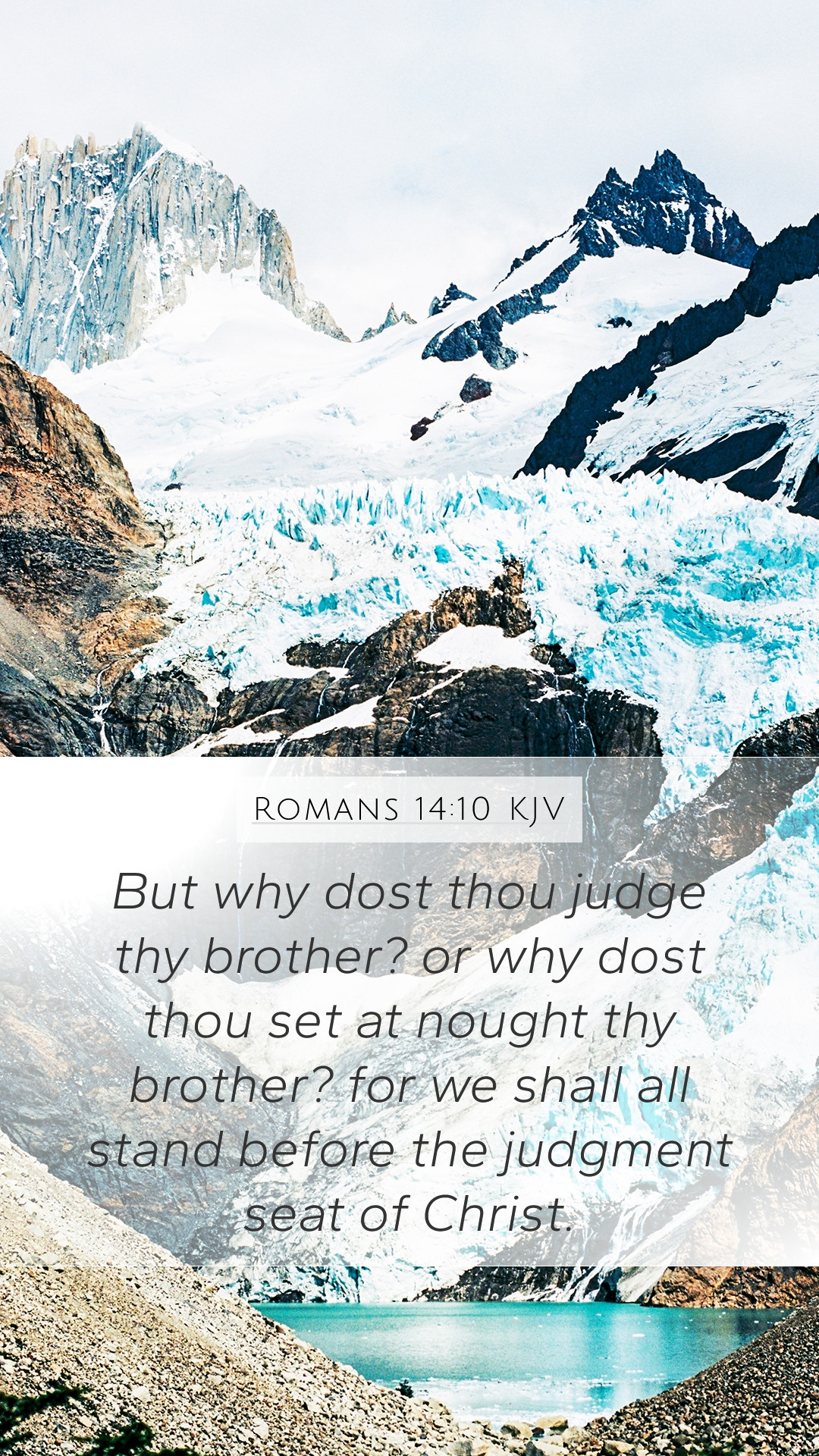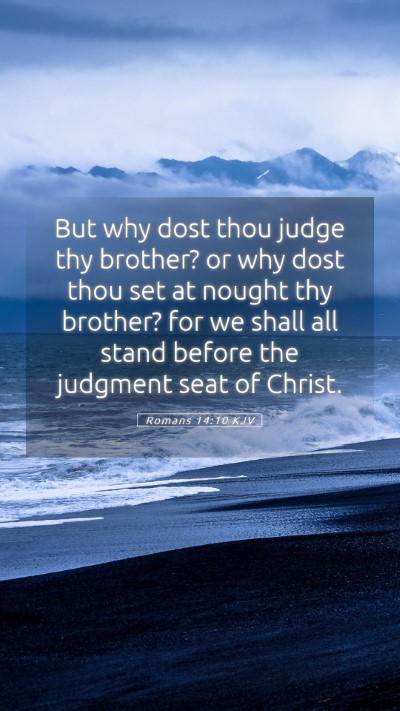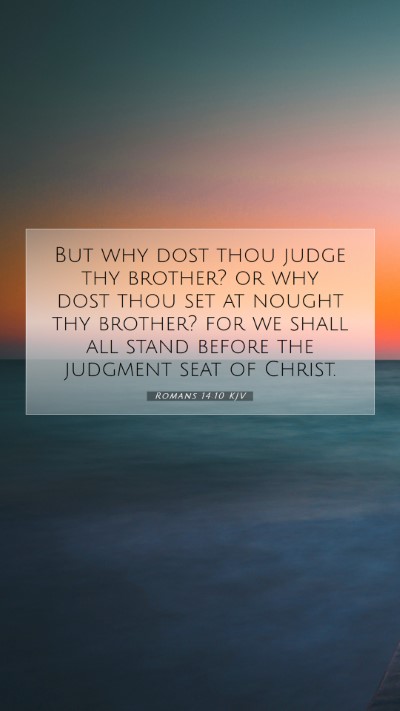Old Testament
Genesis Exodus Leviticus Numbers Deuteronomy Joshua Judges Ruth 1 Samuel 2 Samuel 1 Kings 2 Kings 1 Chronicles 2 Chronicles Ezra Nehemiah Esther Job Psalms Proverbs Ecclesiastes Song of Solomon Isaiah Jeremiah Lamentations Ezekiel Daniel Hosea Joel Amos Obadiah Jonah Micah Nahum Habakkuk Zephaniah Haggai Zechariah MalachiRomans 14:10 Meaning
What is the meaning of Romans 14:10?
But why dost thou judge thy brother? or why dost thou set at nought thy brother? for we shall all stand before the judgment seat of Christ.
Romans 14:10 Bible Verse Meaning
Bible Verse Commentary: Romans 14:10
Romans 14:10 states: "But why dost thou judge thy brother? or why dost thou set at nought thy brother? for we shall all stand before the judgment seat of Christ."
This verse emphasizes the importance of self-reflection and humility among believers. The Apostle Paul addresses the issue of judgment among Christians, urging them to refrain from judging one another and instead focus on their own accountability before God.
Bible Verse Meanings
The key message of Romans 14:10 lies in the call for unity and understanding within the Christian community. Paul is clear that all individuals will face divine judgment, and such awareness should foster a more compassionate approach to others' weaknesses and differences.
Bible Verse Interpretations
-
Matthew Henry's Commentary:
Henry emphasizes the responsibility Christians have to avoid judgmental attitudes towards one another. He notes that believers should remember that only Christ is the ultimate judge, and all actions will be accounted for on the final judgment day.
-
Albert Barnes' Notes:
Barnes highlights that the verse serves as a reminder of the equality of all believers before God. He states that each person's standing is solely based on their faith and actions, not on the criticism they receive from others.
-
Adam Clarke's Commentary:
Clarke elaborates on the necessity of focusing on one’s own spiritual journey rather than judging others. He explains that overlooking others' faults fosters a spirit of tolerance and grace within the church community.
Bible Verse Understanding
A deeper understanding of Romans 14:10 brings awareness of the broader context in which Paul writes. The early church faced challenges in doctrine and practice, particularly concerning dietary laws and observance of special days. Christians were differing in their perceptions and practices, leading to conflicts and misunderstandings.
Bible Verse Explanations
The verse is not just a call to stop judging; it is an invitation to live in love and consider the implications of our actions on fellow believers. Instead of casting judgment, believers are encouraged to uplift one another, recognizing that all will eventually answer to God for their choices—both the strong and the weak in faith.
Application of Romans 14:10
Understanding and applying the teachings of Romans 14:10 transforms interactions within Christian communities. It encourages believers to celebrate diversity in opinions about non-essential matters while adhering to a broader common belief in Christ. The verse invites introspection about personal attitudes and actions.
In-Depth Bible Verse Analysis
The concept of standing before Christ's judgment seat reflects a significant biblical theme of accountability and grace. It is a call to mutual respect and love among believers, encouraging a community that is more focused on supporting one another rather than tearing each other down.
Cross References
- Matthew 7:1-2: "Judge not, that ye be not judged."
- 2 Corinthians 5:10: "For we must all appear before the judgment seat of Christ."
- Romans 14:4: "Who art thou that judgest another man's servant?"
Conclusion
Romans 14:10 serves as a timeless reminder of the call to unity, love, and humility within the church. As believers study this verse and its implications, they are called to foster a community that reflects the love of Christ rather than one that exhibits division through judgment.


